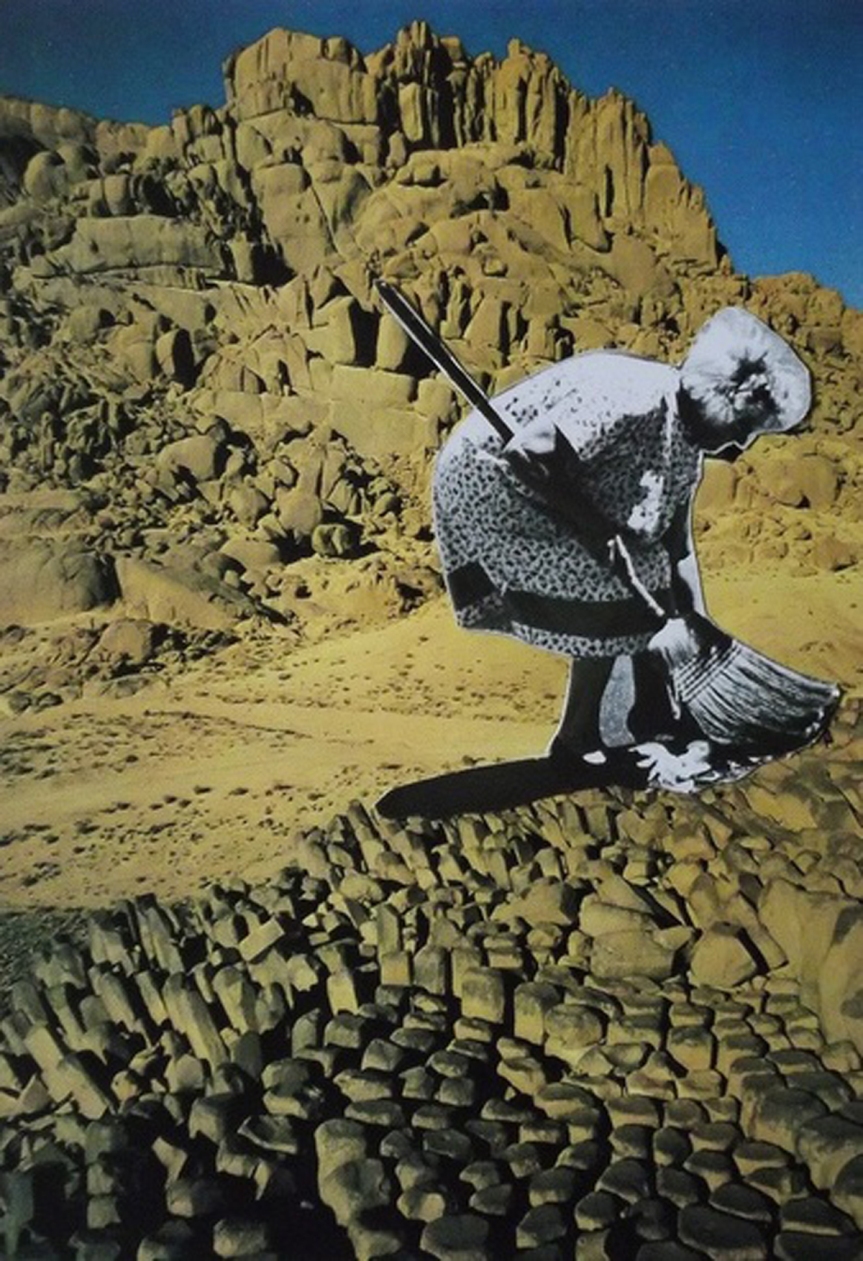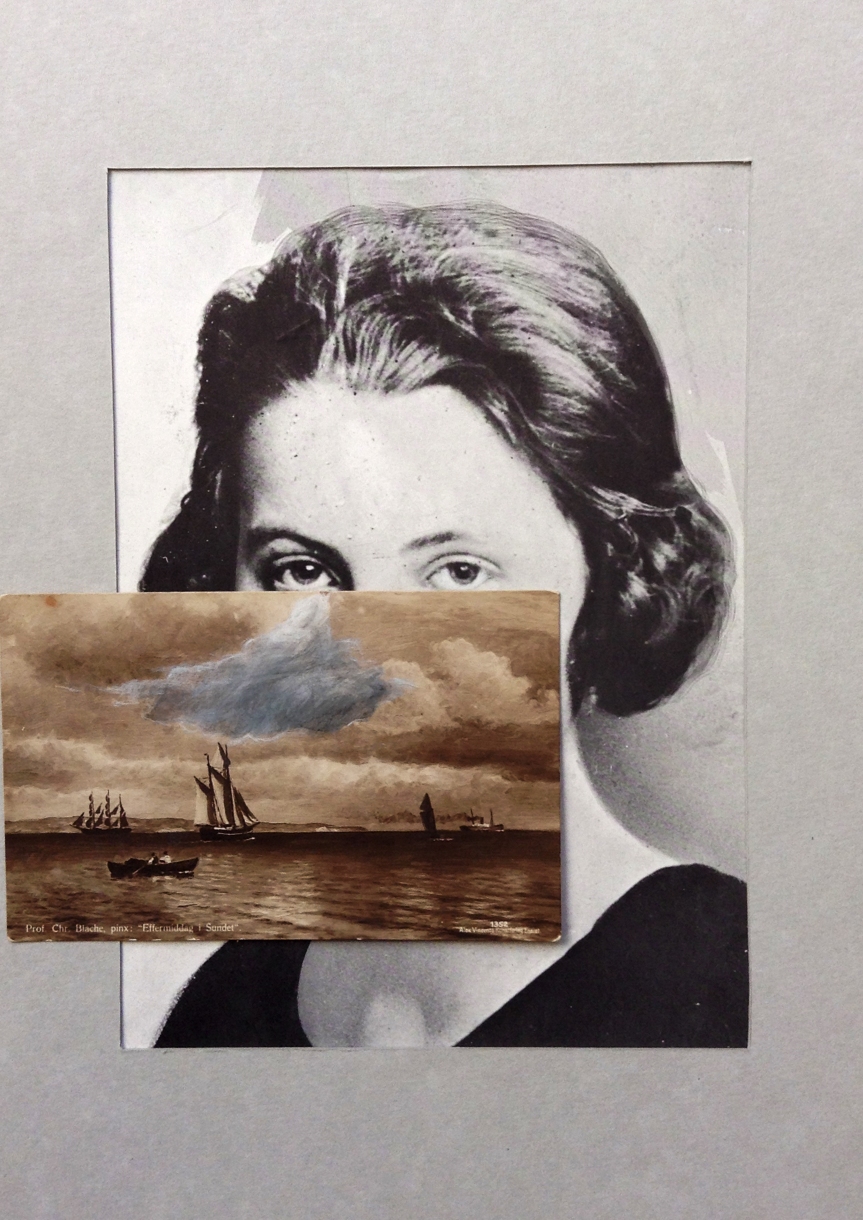Published May 2017

Surroundings (excerpt)
Paul Carlucci
As he laces up his second boot, he feels her eyes land on his face. “Let’s go, Willy. We don’t want to lag behind.”
Her words are light slaps, each syllable, faintly mocking and overtly repulsed. She shoulders her pack and falls in with the rest of the group, who are streaming past the bench on their way to the trailhead. Will struggles along at the back. Is Judy the only one who knows? The only one who saw?
He’s been a man long enough to understand that the other guys must be feeling pent up as well. Five days without release isn’t manageable for anyone under fifty. And it’s been six for Will, because he couldn’t find anywhere private in the airports, nor did he like the idea of teetering around an airplane bathroom, potentially making a mess. He was due. Painfully due. All these chisel-chested kids must be too. Probably more so. If they aren’t sleeping with any of these girls, then they’re relieving themselves somewhere more carefully chosen than the shower huts. They must be.
Will shudders. It’s like being caught shoplifting, isn’t it? Except he owns the store. He owns the product. And somehow, that makes it all the more reprehensible. What’s worse is that this fact of exposure, this fact of getting busted by his wife, a towel slung over her sunburnt shoulder and a folding toothbrush hanging out the side of her mouth, this fact is only a minority portion of the weight on his chest. The bulk of it comes from her response, which was to yank out the toothbrush, thrust her upper body forward, and furiously whisper, straight into his ear: “You better tell me who you’re thinking about, Will. So help me, I want to know.”

Anxious Climber
Lindsay Kiesman
Don’t tell me
my mountains are molehills.
Mountains are subjective.
Any uneven earth
reveals my timid limbs.
I have a low lung capacity,
weak ankles,
and a bad habit
of looking over my shoulder.
Exodus 16
Amanda Earl

Taking the Greyhound from Regina, SK to Revelstoke, BC (excerpt)
Credence McFadzean
There are plenty of reasons why any of us would find ourselves here, our skeletons vibrating in this particular way. They all have something to do with money. Don’t get me wrong, I enjoy riding Greyhound, I really do. And if I were in some kind of low-budget commercial, pressured into singing a praise or two by a red-eyed assistant director holding only her second cup of coffee, I would even say I like it for more than just the amazing early-bird rates, the frequent smoke breaks, the often-functional AC, or the ergonomic sleeping conditions — though make no mistake, these are some serious perks. “But there’s something more,” I’d maybe say, raising my eyes to meet the gaze of the camera, maybe smiling sheepishly. “And you know what? It’s about the people.” The soul-crushed look on the AD’s face slackens just a little. “It’s all the interesting people you get to meet on this crazy little expedition.” She lets out a small sigh, just loud enough to confirm that this take is passable, before her mind turns to the next task of the day. I would definitely say these things under such coercion. Maybe make just enough from it so that I wouldn’t necessarily have to ride Greyhound next time. But I guess I’d miss some things. During my recent trip to British Columbia I encountered all sorts of characters united by circumstance to become Fellow Travellers of the Hound.
My seat-buddy after Calgary was a woman in her late 20s who distinguished herself from the average horse-blinderwearing Greyhounder by being friendly and talkative (I had to remove my earbuds and take off my own horse blinders for this to flourish). We quickly struck up that unique, yet fleeting, Bus Friendship which can really only be understood by those who have found themselves in one. We found out we were both master’s students lingering at the doors of our defense. She told me she’s from Kenya, where she had just finished writing her thesis on “tropical airborne contagions” or something close to that. I told her mine was a pretend degree in creative writing. She asked me what I like to write about and I said stuff like this: bus rides. She told me she’d lived in the UK once, ten years ago. This was her first time visiting Canada, where she hoped to one day get hired. “I will be regarded highly for my degree here.” She’d opted for Greyhound so that she could literally see the whole country as she passed through it. I gave up my coveted window seat.
“Will the pine trees lose their leaves in Winter?” she asked, gasping, taking pictures of miniature streams snaking down rubble cliffs. I told her when I was a child seeing them for the first time, I thought the mountains were paintings.

C. Isa Lausas
you no longer remember
you have a pulse, a body
but no longer
mundane.
awaken unchanged,
the previous night
you’ll recognize yourself.
you’ll be asked to make up
sentences
make
sentences.

Retreat (excerpt)
Ellie Sawatzky
August 1995. The land on either side of the road was full and fierce in its late summer detail — ditches bursting with goldenrod and goatgrass and the craggy, sinuous limbs of scrub oak. Nora admired persistence. In her Kitsilano apartment she grew succulents — jade, burro’s tail, hens-and-chicks. She liked that they didn’t need much tending. She liked that she could leave them.
It had been close to four o’clock in the afternoon when she left the Bulkley Valley United Church. She’d looked at the time, at the position of the sun, and considered her options. She could reach Prince George by nightfall, take a room in a motel, then rise early the next morning and make the ten-hour trek back home to Vancouver.
Now, having unconsciously made the decision to go north instead of south, she turned off the highway onto an unmarked dirt road and kept driving. The road curved and began to climb. With the windows down she smelled dust, sun-warmed spruce, and stone. Then the leathery stink of livestock. The treeline pushed further up the mountainside, and the forest opened to farmland — fields of sheep and pumpkin plants, decrepit barns and sheds.
The taste of burnt coffee lingered on her tongue. Lunch had been served in the church basement after the memorial service — cold cuts, cheese slices, and store-bought rolls. She’d managed to stay through the whole thing, and even afterwards for coffee and Safeway date squares, making senseless small talk with cousins from Alberta she hardly remembered but with whom she had played naked in a rain barrel when they were all still children.
During the service, her brother Jack had gotten up and talked about the time he spent watching from the loft in their barn-style garage as their father tinkered with engines and transmissions. She’d balked at the use of the word “tinkered.” It implied a lightness, a delicacy she would never have put in the same context as her father. A word too nimble, even, to be coming out of her gruff brother’s mouth. Only when someone dies, she thought, can they become a better person.
Afterwards, they had all trouped to the edge of town to pour the cremains into the lazy waves of the Bulkley River.
Contributors in this issue: André Babyn, Paul Carlucci, sarah duignan, Amanda Earl, MW Jaeggle, Hedieh Mehdi Zadeh Kashani, Lindsay Kiesman, C. Isa Lausas, Amy LeBlanc, Danica Lorer, Lorette C. Luzajic, Brandon Marlon, Cassidy McFadzean, Credence McFadzean, Christine Ottoni, Andrew Michael Petrucci, Rasiqra Revulva, Ellie Sawatzky, Paddy Scott, Clay Thistleton, Erin Emily Ann Vance, Anouk Wolse, and Changming Yuan.

